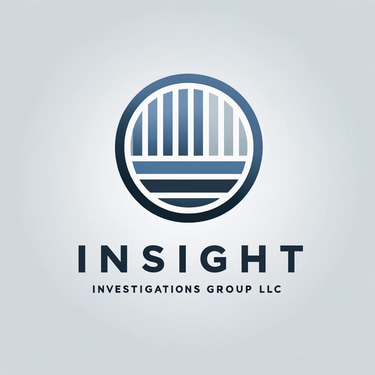The Ethical Boundaries of Surveillance in the Digital Age
Explore the ethical challenges of modern surveillance in private investigations, from advanced technologies like AI and geolocation data to privacy laws and the evolving role of investigators in the digital age. Case studies and expert insights included.
ARTIFICIAL INTELLIGENCE CORPORATE SURVEILLANCE SERVICES BUSINESS APPLICATIONS PRIVATE INVESTIGATION DIGITAL SURVEILLANCE FLORIDA BUSINESS INVESTIGATIVE SERVICES ETHICS


Case Study: The Tampa Port Cargo Theft
In a real-world scenario, a private investigation agency assisted a Tampa Port company in uncovering the theft of a valuable cargo container. Remarkably, they did so without the use of surveillance cameras or GPS trackers. Instead, the investigators utilized geolocation data from data brokers, geofencing the area where the container was stolen to capture the mobile phones present at the time. By analyzing when specific phones left the area and cross-referencing this data with law enforcement databases, the investigators identified employees working for the company as suspects. They further assisted in securing timely subpoenas, helping to resolve the case efficiently. This case illustrates both the power of modern investigative tools and the ethical complexities surrounding data privacy in the digital age.
The Expansion of Surveillance Capabilities
Technological Evolution
Surveillance has evolved from the days of simple stakeouts and wiretaps to sophisticated tools like drones with facial recognition and GPS tracking. Early investigative tools were limited in scope, often requiring physical presence or long hours of manual monitoring. Today, a drone equipped with AI-driven facial recognition software can do in minutes what once took hours or days. Each leap in technology has escalated the privacy debate, with newer tools offering both incredible investigative power and unprecedented opportunities for privacy infringement.
These advancements raise crucial ethical concerns. Legal vs. Ethical Boundaries emerge where technology outpaces legislation, leading to the question: just because it’s legal, is it ethical?
Privacy vs. The Right to Know
Public Opinion on Privacy vs. Safety
Recent surveys reveal a divided public: while some prioritize safety and support enhanced surveillance, others remain deeply concerned about privacy violations. For example, a 2023 poll found that 65% of respondents supported the use of facial recognition in public spaces to combat crime, while 58% feared that such technologies could be misused by private entities.
Legal Precedents Shaping Surveillance
Notable legal cases, such as Carpenter v. United States (2018), where the U.S. Supreme Court ruled that accessing cell phone location data without a warrant violates the Fourth Amendment, highlight how laws are beginning to catch up with technological capabilities. Yet, these precedents often lag behind the rapid pace of innovation, leaving grey areas that complicate ethical decision-making in private investigations.
The Impact of Data Privacy Laws
Global Comparison of Data Privacy Standards
Different regions handle data privacy with varying degrees of stringency. The GDPR in the European Union, for instance, sets stringent requirements on data collection and informed consent, holding companies and investigators to high standards. In contrast, the United States has adopted a sectoral approach, with different industries governed by different privacy laws, such as the Health Insurance Portability and Accountability Act (HIPAA) for healthcare.
Innovative Legal Solutions
Emerging frameworks like Privacy by Design, which integrates privacy protections into the very architecture of new technologies, are becoming increasingly popular. In tandem with mandatory Data Protection Impact Assessments (DPIAs), these innovations seek to ensure that surveillance tools are ethically implemented from the outset.
Ethical Dilemmas in Practice
Interactive Scenario
Imagine you're an investigator with access to a drone and facial recognition software, tasked with tracking a potentially dangerous individual. Do you monitor them continuously or limit your surveillance to public areas? Depending on your choice, the consequences could range from preventing a crime to infringing on someone’s civil liberties. This type of dilemma is common in private investigations, where balancing truth-seeking with respect for privacy is an ongoing struggle.
Expert Insights
In interviews with ethicists and legal professionals, many argue that while deception and undercover operations are necessary, investigators must always weigh the potential harm their actions may cause. Ethicist Dr. Sarah Reynolds notes, “The goal of uncovering truth does not absolve investigators from the consequences their methods might have on individuals’ lives.”
Public Perception and Media Influence
Cultural Shift in Media
The portrayal of private investigators in media is beginning to reflect modern ethical complexities. In recent films like The Circle (2017), surveillance is shown as both powerful and dangerously invasive, a shift from earlier portrayals that often glamorized bending the rules. This evolving narrative may shape public perception, fostering a more critical view of surveillance and the ethical challenges investigators face.
The Future of Private Investigation
Ethical AI Development
As AI becomes increasingly embedded in surveillance tools, ethical programming becomes critical. Proposals for AI with built-in ethical constraints are underway, with some developers working on algorithms that limit data collection to only what is necessary and mandate the deletion of irrelevant data.
Speculative Technologies
Futuristic surveillance technologies like neural ink or quantum computing could vastly alter the landscape of private investigation. Neural ink, for example, could monitor thoughts and emotions, leading to profound ethical implications regarding privacy and consent. Quantum computing could process unimaginable amounts of data, raising questions about who controls such power and how it can be regulated to prevent abuses.
Conclusion
Call to Action
In an era where surveillance technology is becoming omnipresent, it’s essential for the public to remain informed about the ethical and legal dimensions of these tools. Join conversations on digital rights and privacy, and consider engaging with platforms like the Electronic Frontier Foundation (EFF) or attending public forums dedicated to these pressing issues.
Future Scenario
Picture a world where every movement, conversation, and transaction is recorded and analyzed by AI. While this scenario might enhance security, it also poses an unprecedented threat to personal freedom and privacy. Now is the time for society to proactively set the ethical boundaries of surveillance before technology outpaces our ability to regulate it.


